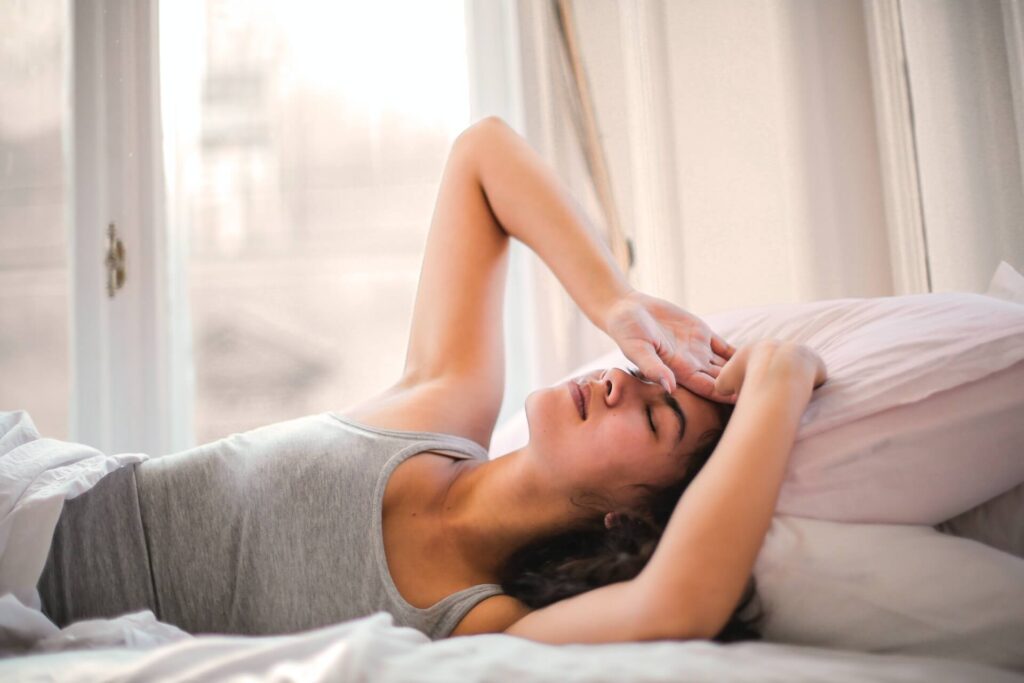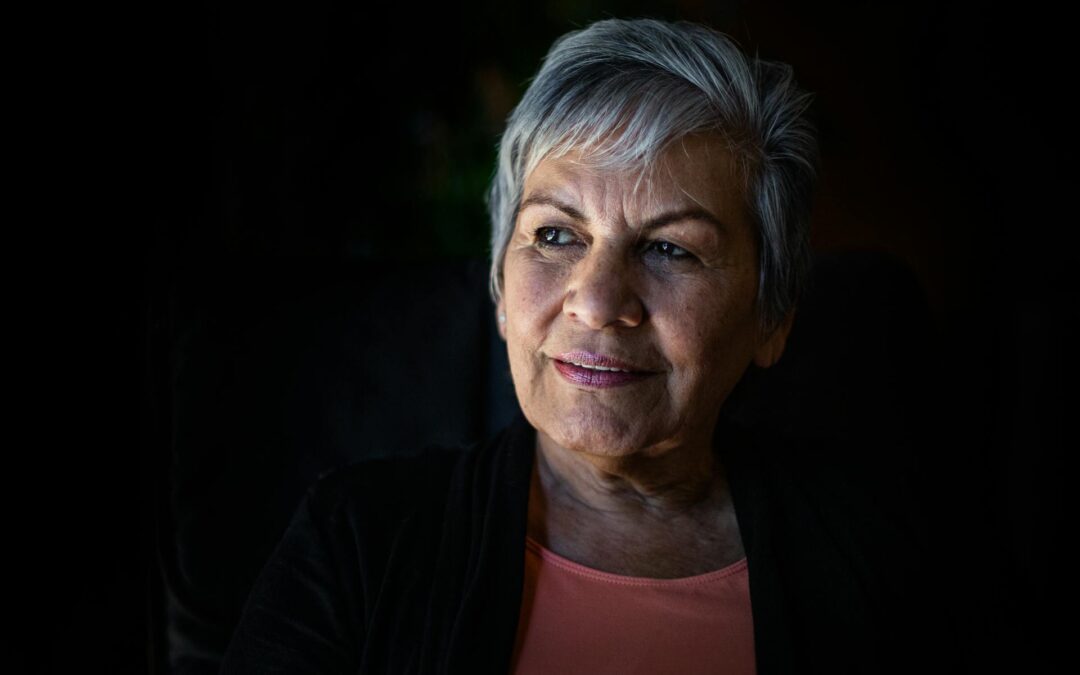Don’t be alarmed if you’ve recently begun a keto diet and are experiencing headaches, brain fog, or mental lethargy. You’re probably experiencing some of the usual (but unpleasant) adverse effects of switching from a carb (glucose)-based diet to a ketone (fat)-based diet. The good news is that these symptoms are very transient for beginning keto dieters. You can take other things to help them go away or make them less uncomfortable while your body adjusts to the ketogenic diet.

What Causes Headaches on a Keto Diet?
When you switch from a carb-heavy diet to a low-carb, moderate protein, and higher fat diet, your body needs time to adjust. Your body is learning to focus on fat-burning as its primary fuel source without large glucose consumption. Common adverse effects of a low-carbohydrate diet are predicted during this time, generally one to two weeks. This time of adjustment is similar to detoxing.
You are detoxifying from a sugary (glucose) diet high in starchy vegetables and other sugar sources. As a result, it’s usual to suffer a range of detox-like or flu-like symptoms during the first week, frequently referred to as the keto flu. Headaches are among the symptoms, which makes sense given the changeover process.
Low Blood Sugar Headaches
Your brain is accustomed to being fuelled by glucose (a byproduct of a high-carbohydrate diet) rather than ketones (the product of a higher fat, low-carb diet). When you start a keto diet, your body continues to seek glucose even when it is no longer accessible, instead producing plenty of ketones for energy. This can cause your blood sugar levels (blood glucose) to drop too low (usually below 70 mg/dL), especially if you are intermittent fasting, and you can become hypoglycemia if you are not yet keto-adapted (1). In this scenario, developing hypoglycemia is not a cause for concern.
It’s all part of the process. Yet, because your body isn’t used to it, this sudden low blood sugar (no glucose) might temporarily stress your brain and nervous system(2), resulting in a stress-hormone headache, severe hunger, and cognitive fog. As your body begins to use ketones instead of glucose, you should enjoy some relief from your headache, improved energy levels, and the proven health advantages of remaining in nutritional ketosis.
Dehydration
Have you noticed that you lose weight quickly when you start eating keto? This is due to water loss. Your body excretes additional water when you’re in the transition stage of keto and utilizing up your stored glucose (glycogen). This is because each gram of glycogen is stored and released with three grams of water (3). As a result, as your body depletes its glucose stores, it also expels considerable volumes of water (and the bloating that goes along with it). If you don’t refill that water by drinking often and in large quantities, you’ll get dehydrated—and maybe experience the headache that comes with dehydration. (Are you familiar with hangover headaches? The concept is the same.)
Electrolyte Imbalance
In addition, when you limit your carbohydrate intake, your body produces less insulin. Because the role of insulin is to metabolize the glucose in carbohydrates, when you quit eating carbs, your body requires and consequently generates less insulin. Your kidneys expel more sodium, one of the electrolytes that regulate your hydration, when you have less insulin in your bloodstream (4). Excessive sodium excretion can also upset the equilibrium of other essential electrolytes like potassium and magnesium. This imbalance is one of the primary causes of keto flu symptoms. If you get headaches while on keto, it might be due to salt loss.
Toxins from Stored Fat
When your body starts using fat for fuel instead of glucose, it depletes your fat stores. Toxins are also stored in these fat deposits. Toxins are released into the circulation while the body breaks down fat, potentially causing headaches, dizziness, and tiredness.
Menstrual Cycle
There is a lot of misinformation and anecdotal evidence about hormones and ketones, but what is abundantly clear in the literature is that ANY diet that results in rapid weight loss or restricts calories (which some people do initially on keto to help lower their appetite) will change diurnal rhythm (daily patterns) and signal hormonal changes. It’s also true that decreased insulin levels result in lower estrogen levels. Most people nowadays suffer from estrogen dominance due to blood sugar imbalance, stress, exogenous hormone disrupting chemical exposure, poor sleep habits, and excessive blue light/screen time.
Other potential causes
Some other variables may enhance your chances of getting headaches while on the keto diet.
They include the using medicines, diuretics, and other dehydrating substances, and your age and lifestyle variables such as lack of sleep, stress, and missing meals (5).
How to treat and prevent headaches on keto
What can you do to alleviate a keto-induced headache? Here are some simple home cures to try. They’re also healthy long-term habits for your keto success, headaches or not.
- Drink plenty of water. Prevent dehydration. Throughout the day, drink at least half your body weight in ounces of water. If you weigh 150 pounds, for example, you need to drink 75 ounces of water. In addition to this amount, if you consume diuretics like coffee, increase your water consumption by 1-1/2 cups of each cup of coffee. This will also aid in flushing out toxins generated when burning fat storage. During this period, several people seek electrolyte supplements. Bone broth or bouillon is also often used. But it’s unnecessary, especially if you follow the subsequent three suggestions.
- Salt Your Water. A straightforward technique to compensate for sodium loss on the keto diet (and thus assist in maintaining electrolyte balance) is to add a pinch of Himalayan salt to each glass of drinking water. You may also supplement your electrolytes by adding mineral drops to your water.
- Eat Enough Fat. Coming off a high-carb diet, eating so much fat may seem counterintuitive. But, attaining the correct macros (70 to 80 percent of your daily calories from fat) is critical to a successful keto transition. It’s also your best chance to manage a low blood sugar headache and control your appetite.
- Eat Quality/Nutrient Dense Foods. How can you combat the toxins produced by fat loss? Ensure you’re getting enough nutrients (within your macros), and, if necessary, don’t go too low on calories too soon. You don’t want to shed fat too quickly because this releases different poisons that have been accumulated. Likewise, choose healthier foods free of GMOs, hormones, and other contaminants like pesticides while making meal plans.
- Try an electrolyte supplement. An electrolyte supplement may reduce your chances of experiencing dehydration and keto flu symptoms.
- Avoid intense exercise. Avoid strenuous activities during the first few days of keto since they might stress your body and raise your risk of headaches.
- Limit your alcohol intake. Because alcohol is a diuretic, it causes you to pee more frequently and may raise your risk of dehydration (6).
If you still get headaches after several days or weeks on the keto diet, see a doctor to be sure an underlying medical problem isn’t caused.
The bottom line
We’ve answered your questions and alleviated your headache. But first, a short recap of keto headaches:
- Keto headaches are prevalent when switching from a high-carb to a high-fat, low-carb diet. They are also transient and will fade as your body learns to use ketones for fuel.
- To avoid headaches, add a pinch of Himalayan salt to your water to replace the sodium lost due to keto-related water loss.
- To prevent toxins in your food, stick to a “clean-keto” diet as much as possible.
- To assist in boosting energy and promote your keto transition, meet your daily macros (fat, protein, and carbohydrates).
- Sudden water changes in the female body, whether induced by the ketogenic diuretic diet or not, cause estrogen to drop quickly and cause hormone imbalance, which can cause headaches. To avoid this, increase your salt intake and hydrate, and, in the case of certain women, improve your complex carbohydrate consumption for a short period shortly before menstruation.
Disclaimer: Before starting a new diet, always seek medical counsel, especially if you have health concerns or prior diseases. Hence, before making any significant dietary changes, including moving to a high-fat diet, always consult with your doctor or a nutritionist.



![How Low Carb and Ketogenic Diets Boost Brain Health [Benefits & Effects]](https://eathealthyisgood.com/wp-content/uploads/2023/11/pexels-ella-olsson-1640773-1-1080x675.jpg)



0 Comments